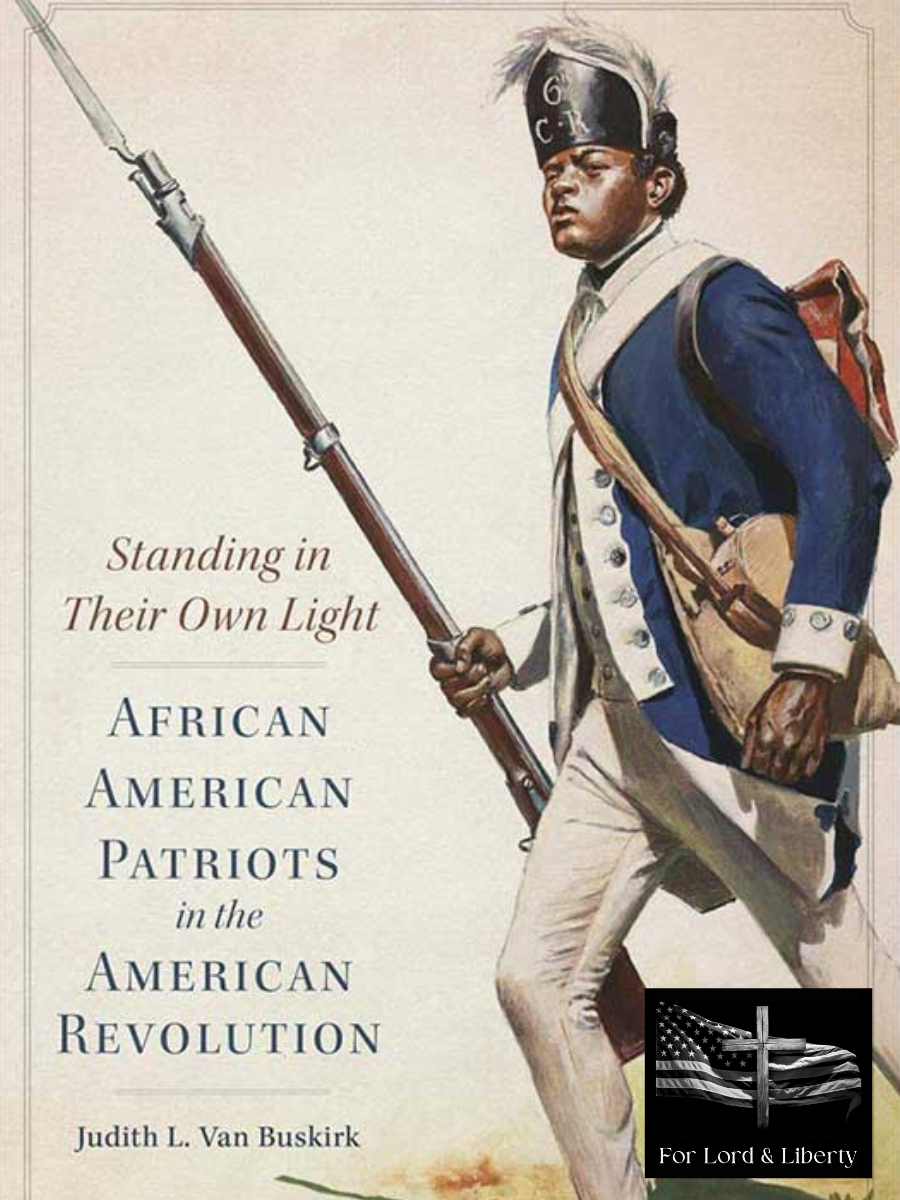
African Americans in the Revolutionary Era: Faith, Freedom, and Patriotism
Share
For Lord & Liberty stands firm on the belief that faith and patriotism are the cornerstones of a strong nation. Our mission is to educate individuals about the rich history of biblical teachings and American history. Today, we focus on African Americans' critical yet often underrepresented role in the Revolutionary Era. Their contributions, struggles, and enduring legacy are integral to understanding the full tapestry of America's fight for independence. African Americans faced a unique and complex situation during the American Revolution. On one hand, they were entangled in the broader struggle for American independence from British rule. On the other hand, they were fighting their own battle against the institution of slavery. This dual struggle shaped their participation and their choices during this difficult period.
Patriots and Loyalists: Choosing Sides
African Americans made strategic decisions when choosing sides in the conflict. Some joined the Patriot cause, driven by the hope that American independence would lead to greater freedom and the eventual abolition of slavery. Notable figures like Crispus Attucks, who became the first casualty of the Boston Massacre, exemplify the early involvement of African Americans in the Patriot movement. Others sided with the British, believing that the British promise of freedom for slaves who joined their ranks was a more immediate path to liberation. The British formed the Ethiopian Regiment, consisting of escaped slaves, and their efforts were highlighted in Dunmore's Proclamation of 1775, which promised freedom to slaves of rebel masters who would join the British forces.

Notable African American Figures
- Peter Salem: A former slave who fought bravely at the Battle of Bunker Hill, Peter Salem's bravery earned him recognition and respect among his fellow soldiers.
- Phillis Wheatley: An enslaved African American poet whose writings supported the Patriot cause and articulated the yearning for freedom and equality.
- James Armistead Lafayette: An enslaved man who served as a spy for the Continental Army, providing critical intelligence that contributed to the American victory at the Battle of Yorktown.
Enslaved and Free African Americans in the War
Both enslaved and free African Americans played significant roles in the Revolutionary War. They served in various capacities, including soldiers, laborers, and sailors. The Continental Army saw the value in enlisting African Americans, especially as manpower shortages became more acute. Despite initial reluctance, the contributions of African American soldiers proved invaluable. Free African Americans also made substantial contributions to the war effort. They joined militias, supported boycotts, and provided essential goods and services to the revolutionary cause. Their participation highlighted their commitment to liberty and justice despite systemic discrimination and inequality.
The Impact of Religion
During the Revolutionary Era, religion was instrumental in influencing the beliefs and behaviors of African Americans. For many, faith provided a source of comfort and empowerment, as they identified parallels between the stories of liberation in the Bible and their own pursuit of freedom. The Christian principles of equality and the moral objections to slavery held particular significance within the African American community, motivating many individuals to actively participate in the fight for independence.
Post-Revolution Outcomes
The outcomes of the American Revolution were mixed for African Americans. While some gained their freedom through military service or escape, the new nation did not universally embrace the ideals of liberty and equality for all. The institution of slavery persisted, particularly in the Southern states, and racial discrimination continued to be a pervasive issue. However, the Revolution also planted seeds for future movements toward emancipation and civil rights. The Revolution's rhetoric, with its emphasis on natural rights and individual liberty, provided a foundation for subsequent generations of African Americans to challenge injustice and advocate for their rights.
The legacy of African Americans in the Revolutionary Era is one of resilience, bravery, and an unwavering commitment to the ideals of freedom and equality. Their contributions were critical to the success of the American Revolution and helped shape the emerging nation. Recognizing and honoring their role is essential to understanding the full history of America's fight for independence.
Embracing History for Liberty
At For Lord & Liberty, we honor the courage and resilience of African Americans who fought for both American independence and their own freedom. Their stories remind us of the enduring principles of faith, patriotism, and justice that continue to shape our national identity. By educating ourselves and others about their significant contributions, we celebrate the rich history that defines our nation.
Join us as we look deeper into America's rich history, uncovering the untold stories and invaluable contributions of those who shaped our nation's journey toward independence. Stay tuned for more insights and stories that celebrate the timeless principles of faith and patriotism at the heart of our nation's history.
